

Dear reader,
2022 was an exciting year for Poseidon. We were fortunate to be part of many interesting and impactful projects across the globe, covering a wide variety of sectors and topics from ocean governance, to renewable energy development and new research on blue shark conservation and management needs.
For this year’s newsletter we are sharing a brief review of some key projects, which showcase the breadth of work we are involved with.
From all of us at Poseidon, we would like to thank all our clients and our network of consultants working around the world.
Poseidon Aquatic Resource Management Ltd. main@consult-poseidon.com








Contributing to a green energy future
Reflecting the global drive towards clean, low-carbon energy, it has been a busy year for Poseidon team members. Currently, our staff are engaged in over 30 offshore wind farm projects. Poseidon provides commercial fisheries support to clients across all stages of offshore renewable energy development, with projects in UK and Irish waters and beyond.
Services provided for offshore renewable energy development in 2022 included:
Support from consent to construction and beyond
Since 2018 Poseidon has provided support to the Neart na Gaoithe offshore wind farm, located off the east coast of Scotland, consisting of 54 turbines and expected to be operational in early 2024.
Consent for the project was granted in 2018, with construction commencing in 2020. Our team’s work has included undertaking the commercial fisheries EIA to support consent application, and post-consent support has included:
As we move into 2023, Poseidon continues its work in offshore renewables and looks forward to keeping pace with this fast-developing sector.
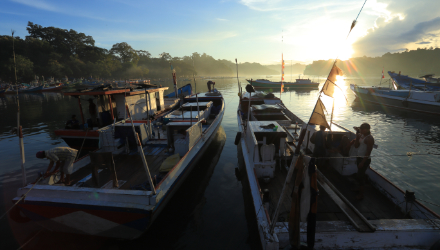
Helping blue economies bloom
Poseidon are working with several national and regional agencies to develop blue economy programmes in the West Indian Ocean.
We are currently leading on the formulation of an EUR 58 million Regional Blue Economy and Ocean Governance Programme for the West Indian Ocean, which will cover all continental countries from Djibouti down to South Africa, including the island states. The regional programme will enhance the coordination needed for effective development and management of the blue economy across the WIO, working with several national governance agencies, development partners, IGOs, NGOs and the private sector. This initiative will support and boost sustainable regional ocean governance and management. Our work has included:
At a national level, our staff are leading a team of experts to design a five-year EUR 30 million blue economy programme for Mozambique. The programme is expected to support the creation of a national blue economy observatory to act as a knowledge hub on the blue economy and investment opportunities, value chain improvements in selected blue economy sectors, and marine conservation and restoration.
In Rodrigues, we have been working as part of a multi-disciplinary team of experts to update the ten- year Sustainable Integrated Development Plan for Rodrigues, having special responsibility for the blue economy component.
Our work on these projects will result in agreement over funding, activities, and implementation modalities to support the blue economy in the region over the coming years. This will support conservation, protection, and rehabilitation of the marine environment, as well as growth, innovation, energy transition and the sustainable development of blue economy sectors.
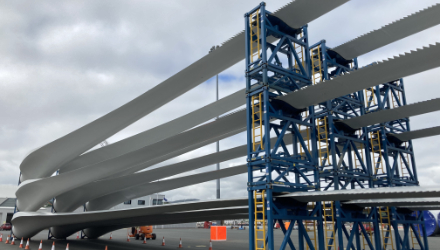
Over the past seven years, the European Maritime and Fisheries Fund (EMFF) has supported development of the EU Integrated Maritime Policy (IMP), a key pillar of which was innovation and new technologies, developed through a grant scheme, to assist small and medium businesses to develop and complete their blue economy projects.
Building the foundation for the success of the blue economy
Working alongside several partners and the European Commission, Poseidon is evaluating the success of blue economy projects funded under the EMFF. The assignment aims to measure the impact of these grants, to collect and exchange information on best practices, and to develop synergies with other EU funded projects through a series of themed workshops.
By providing a platform for the exchange of information and evaluation insights the Commission can improve the design of future finding calls and better support future projects.
Our work’s contribution to visibility of blue economy projects through the promotion and sharing of success stories and the mainstreaming of results will inspire the work of current and future beneficiaries and so increase their chances of success.
Other Blue Economy projects in 2022
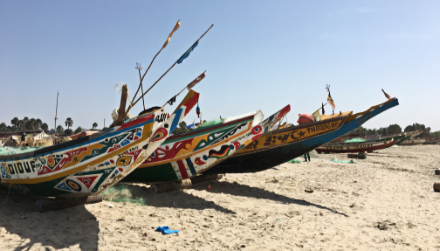
Contribution to the FISH4ACP programme
FISH4ACP is a global programme funded by the EU and BMZ and implemented by FAO. It seeks to enhance the productivity and competitiveness of twelve fisheries and aquaculture value chains from African, Caribbean and Pacific countries to maximise their economic returns and social benefits, while minimizing the detrimental effects on natural habitats and marine wildlife.
The programme’s objectives are to assess value chain performance and design upgrading strategies.
Support is then provided for the implementation of the strategies.
Poseidon staff played a key role in the analytical and design phase of two projects, leading multi- disciplinary teams of experts to assess value chains and then design upgrading strategies for the purse seine fishery in the Marshall Islands and the mangrove oyster value chain in the Gambia.
During a one-year design phase in each country, our staff had special responsibility for the economic analyses to model and assess value chain performance, and for the detailed specification and justification of the value chain upgrading strategies.
Poseidon’s work contributed to the successful development of robust and evidenced-based upgrading strategies through participatory processes which ensured stakeholder support. We are delighted that the strategies have been endorsed by stakeholders and are now being implemented in both countries.
The Gambian upgrading strategy will increase economic and social benefits to women who represent almost all those working in the value chain, through improved resource management, expansion of new markets and products and support for the development of oyster farming. In the Marshall Islands, the strategy will support the country’s ability to export more tuna in containers rather than being transhipped, resulting in value-added benefits to catching sector and shore-based companies.
Our involvement in these two value chains is continuing in both countries during the main implementation phase of the project until 2025, with the provision of strategic advice in support of implementation of the strategies in both countries. Many lessons have been learnt during the analysis and design phases about the value chain methodology used by the FISH4ACP programme. Poseidon staff are also contributing to methodological revisions, taking the lead on economic aspects of the methodology and related tools. The result will be improved and streamlined methodological guidance documents and tools on how to use value chain analysis when designing project interventions and upgrading strategies.
Other economic studies conducted in 2022
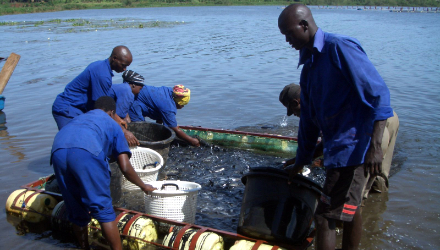
Supporting ambitious aquaculture developments in Rwanda
Poseidon has been working in 2022 and 2023 with our colleagues in Gatsby Africa to assist the Ministry of Agriculture and Animal Resources (MINAGRI) and the Rwanda Agriculture and Animal Resources Development Board (RAB), in the development and drafting of a National Aquaculture Strategy for Rwanda (NASR). This is a medium term (2023 – 2035) sector strategy that will guide Rwanda towards a thriving aquaculture industry. NASR aims to increase the long-term productivity and sustainable growth of the aquaculture sector, by developing feed and fingerling production through research, increasing capacity development, and interventions to modernize the sector.
Poseidon’s experts in aquaculture value chains are supporting the development of NASR, through extensive research and analysis of Rwanda’s aquaculture sector, identifying and consulting national stakeholders to obtain input on the constraints, opportunities for Rwandan aquaculture and to obtain feedback to incorporate into the development of the Strategy. Our consultancy aims to provide the planning necessary to guide the evolution of the sector by exploiting opportunities, minimising risks, attracting investment, boosting development, and ensuring the long-term economic, environmental, and social sustainability of the sector.
Our work includes;
Our work will help MINAGRI/RAB to have a clear understanding of the constraints and opportunities faced by aquaculture businesses, understand the optimal aquaculture farming systems, approaches, and locations with the highest potential for growth and understand the major constraints to this growth. This will help to ensure that NASR implements the optimal management models to enable the aquaculture industry to develop and meet national and international market demands, tackle sector weaknesses and gaps, and is supported by technological innovation, in a plan that reflects the national planning ambitions but is a but realistic target for the growth of the Rwanda aquaculture industry.
At present, our team has generated some very encouraging findings, with our analysis indicating that just under 105,000 tonnes of fish could be produced by Rwanda by 2035, with around 78,500 tonnes produced from aquaculture. The team have worked to provide the suggested support actions required to facilitate such growth, such as significantly increasing planning and environmental management to ensure aquaculture in lakes does not exceed the carrying capacity and increasing Rwanda’s research capacity.
Other aquaculture projects in 2022
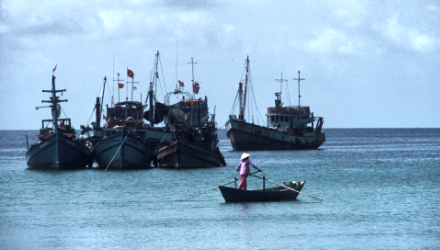
Improved regional fisheries governance in western Africa (PESCAO), Mid-Term Evaluation
In 2018 the EU agreed to fund the PESCAO programme, for the fifteen Member States of the Economic Community of West African States (ECOWAS) and Mauritania. With a budget of EUR 15.7 million and running for 5 years from 2018 to 2023, the programme aims to improve regional fisheries governance in Western Africa through better coordination of fisheries policies and enforcement activities by national and regional stakeholders, and to enhance the contribution of fisheries resources to sustainable development, enhance food security and increase poverty alleviation in West Africa.
Poseidon were tasked with conducting an in-depth, mid term review (MTR) of the PESCAO programme early in 2022. The main objectives were to provide the European Union, interested stakeholders and the wider public with:
The MTR considered the performance of the programme against standard evaluation criteria and examined the assumptions underpinning the programme design, the programme processes, and emerging programme impacts.
Poseidon’s evaluation concluded that PESCAO was highly relevant in addressing the need for a consistent policy framework to support the implementation of the fisheries and aquaculture component of the ECOWAS policy for agriculture at regional and national levels. Even in its mid stage of implementation, we found that PESCAO had contributed to:
From our evaluation, we drew several generic lessons essential to the success of fisheries management programmes:
Poseidon also proposed recommendations, carefully tailored to different stakeholders, for improving PESCAO’s implementation and increasing the potential of the programme to achieve its stated objectives.
Other Evaluation Projects completed in 2022.
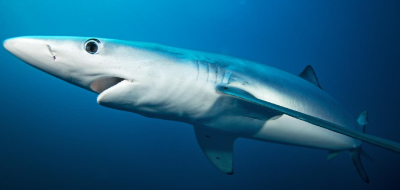
A big year for blue shark
In 2022 Poseidon produced an economic valuation of the global market for blue shark products and an interdependent policy analysis for sustainable management and trade of blue shark products for OCEANA. The report is the first to quantify the global catch and economic value of blue shark products and maps the global trade networks of major importers and exporters of blue shark products.
Official shark catch and trade data is often not very robust, with the underreporting of traded products such as fins and the misreporting of species landed. Blue shark stock status is mostly informed by catch data, which does not accurately present the true status of global blue shark stocks. Multiple reports detail the decline of blue shark populations in recent years, which prompted the need to improve our understanding of blue sharks, both in terms of their true value to global fisheries and the threats and pressures facing the species.
Our analysis found that blue shark is a highly valuable species that is subject to targeted fishing, and not simply as a bycatch of tuna fisheries. In 2019, blue shark landings accounted for US $411 million in first hand sales, exceeding the landed value of Atlantic, Southern and Pacific bluefin tuna that year. The reconstructed landings of 189,783 tons, equates to between 7- 10 million blue sharks, mainly from targeted longline fisheries by large-scale commercial fleets, with 74% of catches attributed to distant water fleets. Of all blue shark landings in 2019, 53% were from the Pacific Ocean, with the Atlantic and Indian Oceans accounting for 34% and 13% respectively. In some ocean basins, blue shark was the dominant catch and species such as tuna were in fact secondary; in the Atlantic Southwest, 5 tonnes of blue shark were caught for every 1 tonne of tuna.
Our study found that Taiwan was a major trader of blue shark, accounting for roughly 25% of all blue shark caught in 2019. Hong Kong remains the world’s top exporter of shark fins, with blue sharks accounting for ~50% of fin exports, which mainly go to other Asian and mainland Chinese markets.
Perhaps surprising to those outside the region, the largest net importer and consumer of both shark and blue shark meat globally was Brazil. Its consumption coincides with extensive mislabelling and misleading information. Shark meat is often sold under a generic name commonly know as Cação, often in a mix of different fish. Consequently, many Brazilians are unaware that they are eating shark meat at all.
Despite blue sharks being one of the most abundant and resilient shark species, their populations are thought to be decreasing, largely due to the continued fin trade and the growing demand for shark meat. Blue shark accounted for 60% of all reported shark catch, 36% of all traded shark meat and 41% of all traded shark fins , presenting a clear need for effective management and conservation of this species. Although the International Union for Conservation of Nature (IUCN) now categorizes the global population of blue sharks as “Near Threatened” and the Mediterranean population as “Critically Endangered”, our study found that the global blue shark fishery has minimal management compared to other significant fisheries, such as tuna. There is no RFMO specifically dedicated to the conservation and management of sharks. Three major RMFOs already have mandates that would allow them to engage more directly in the management of oceanic sharks.
Poseidon provided wide ranging recommendations that OCEANA used to encourage RFMOs to increase direct management of blue shark fisheries and to improve conservation and protection of blue shark fisheries.
As a result of the efforts of organisations including OCEANA, several shark species including blue sharks, were recently added as Appendix II CITES species. This is a significant step in ensuring the protection and conservation of blue sharks globally. Additionally, following the CoP19 summit, the US House of Representatives made a landmark decision to implement a total ban on the buying and selling of shark fins in the United States, securing a crucial win for shark conservation. efforts.
OCEANA’s report and press release can be found here:
Press Release: https://oceana.org/press-releases/new-oceana- analysis-finds-tuna-fisheries-are-masking-usd-411-million-blue- shark-industry/Fisheries & Governance: other projects in review
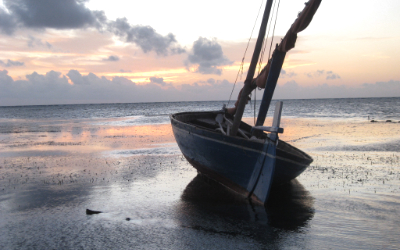
Environmental certification and Fisheries Improvement Plans (FIPs)
Poseidon remains very active with Marine Stewardship Council (MSC) fishery assessments, re-assessments, and surveillance audits, benchmarking and scoring fisheries against the standard. Work in 2022 included:
Our recent and ongoing work on Fisheries Improvement Plans (FIPs), often a pre-cursor to MSC-certification, includes: